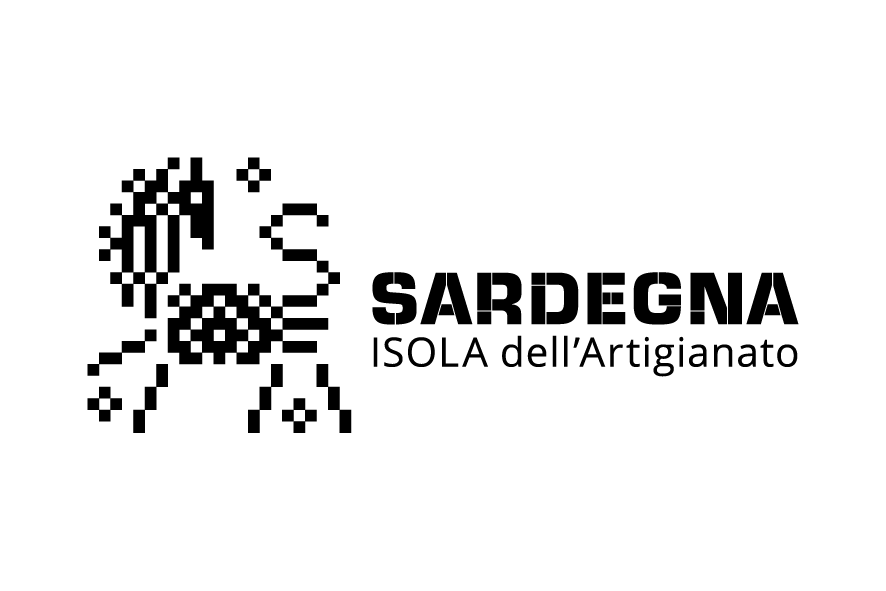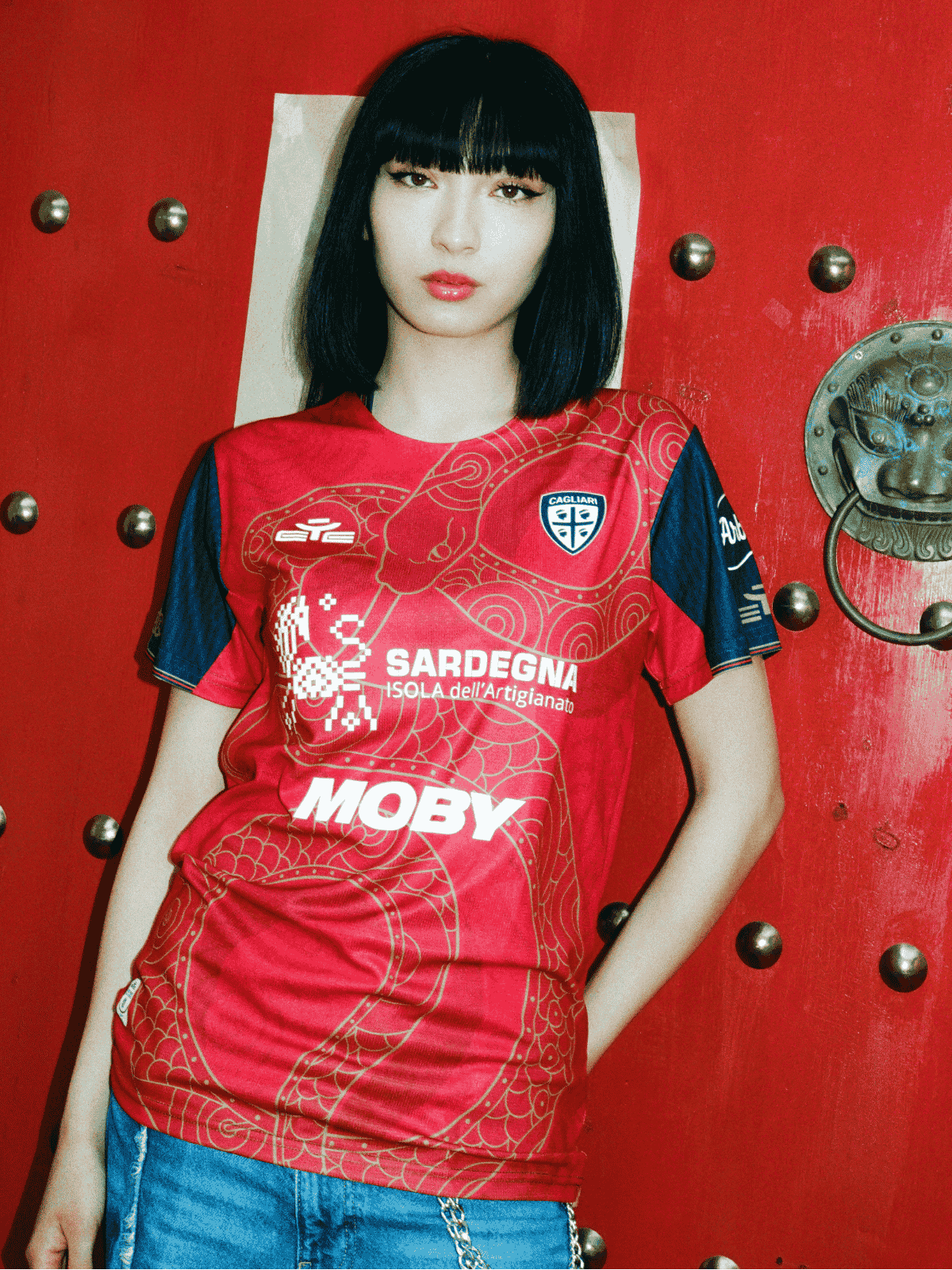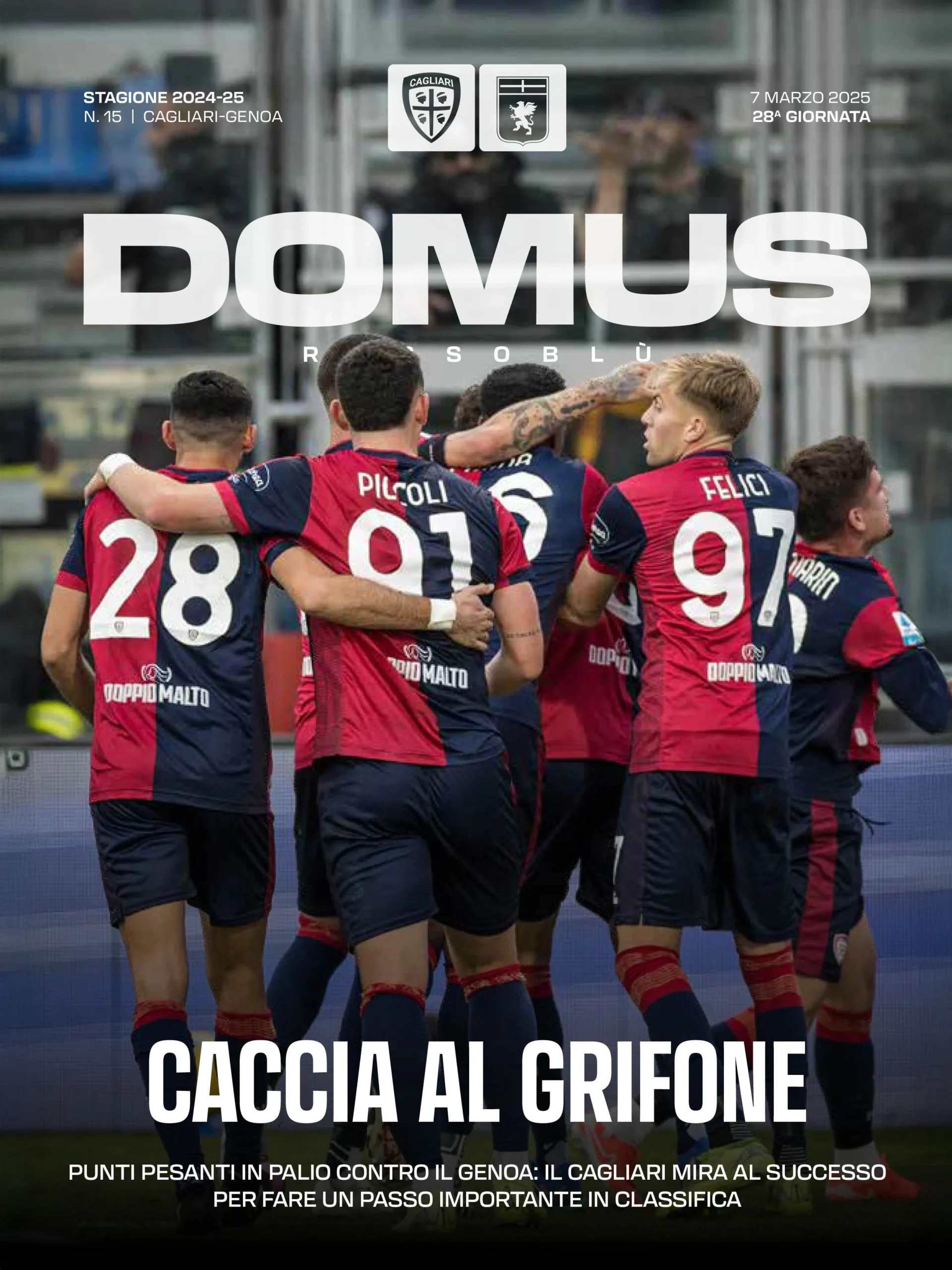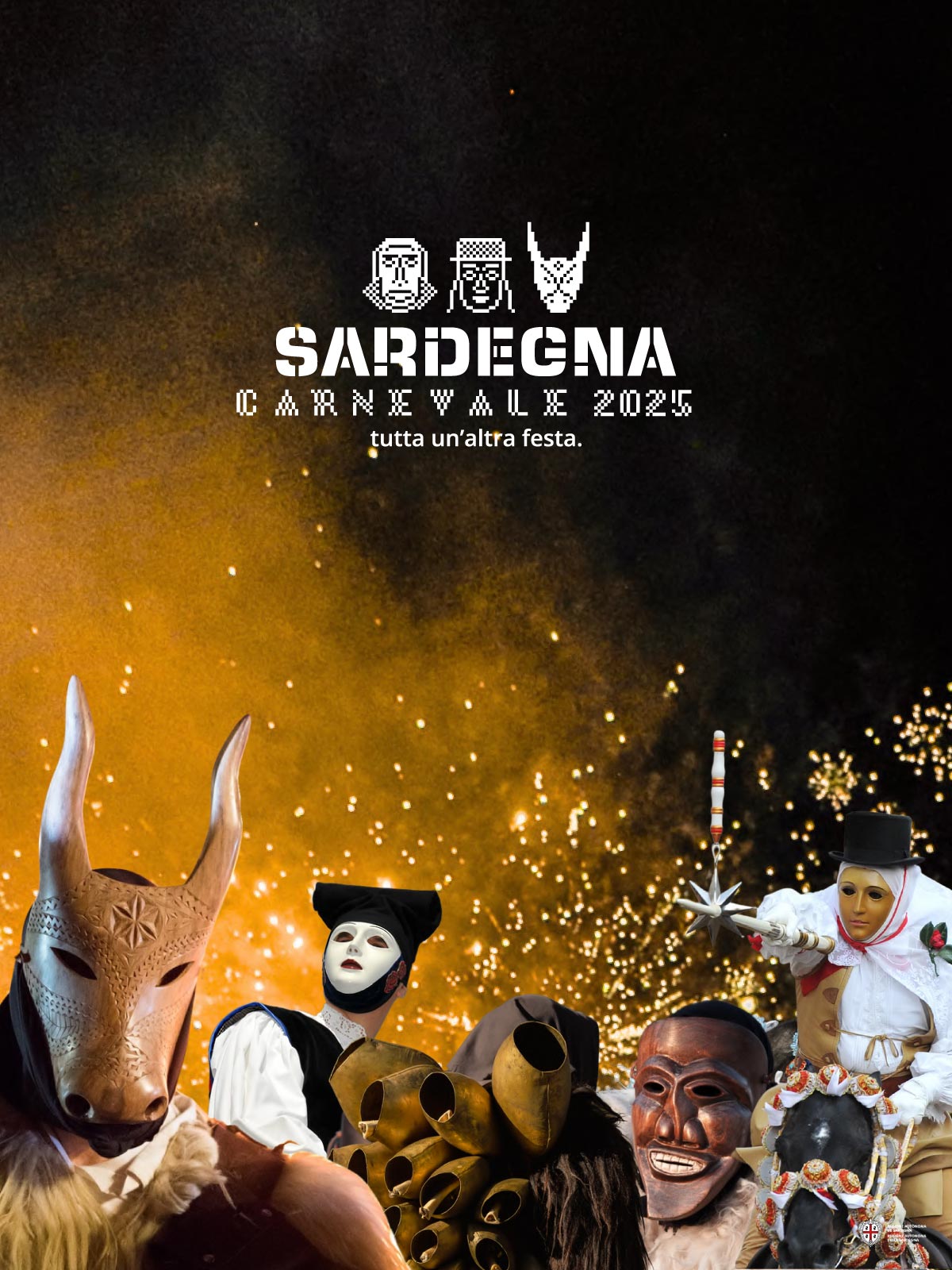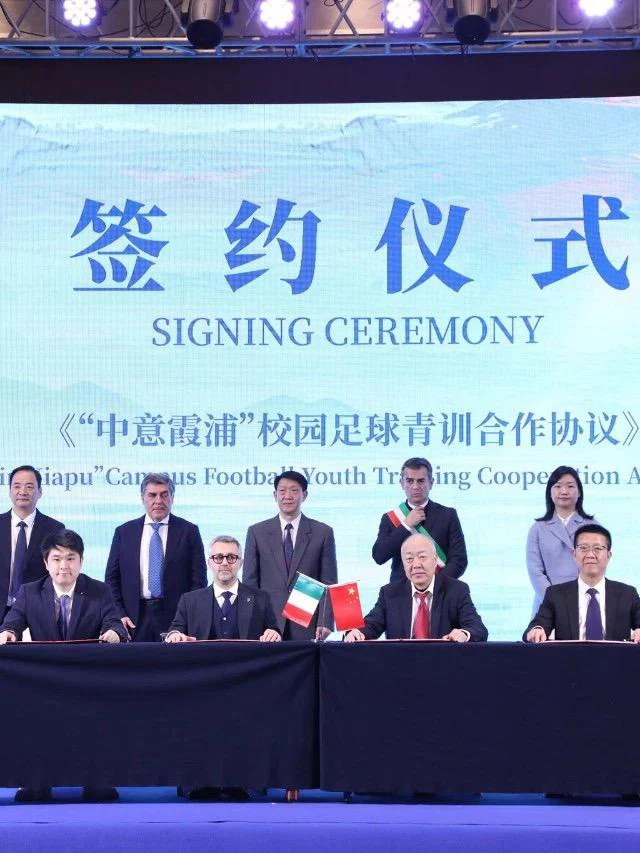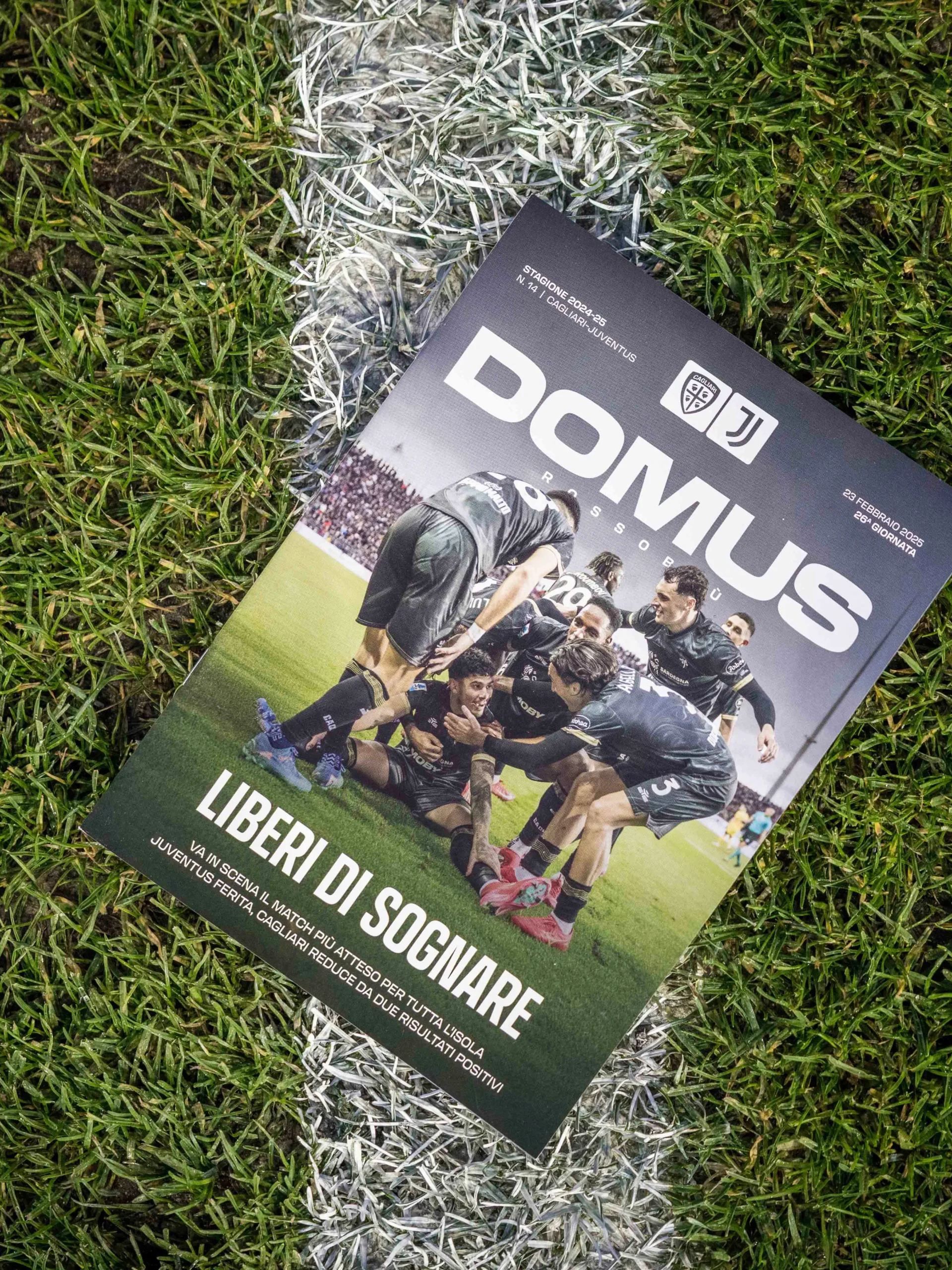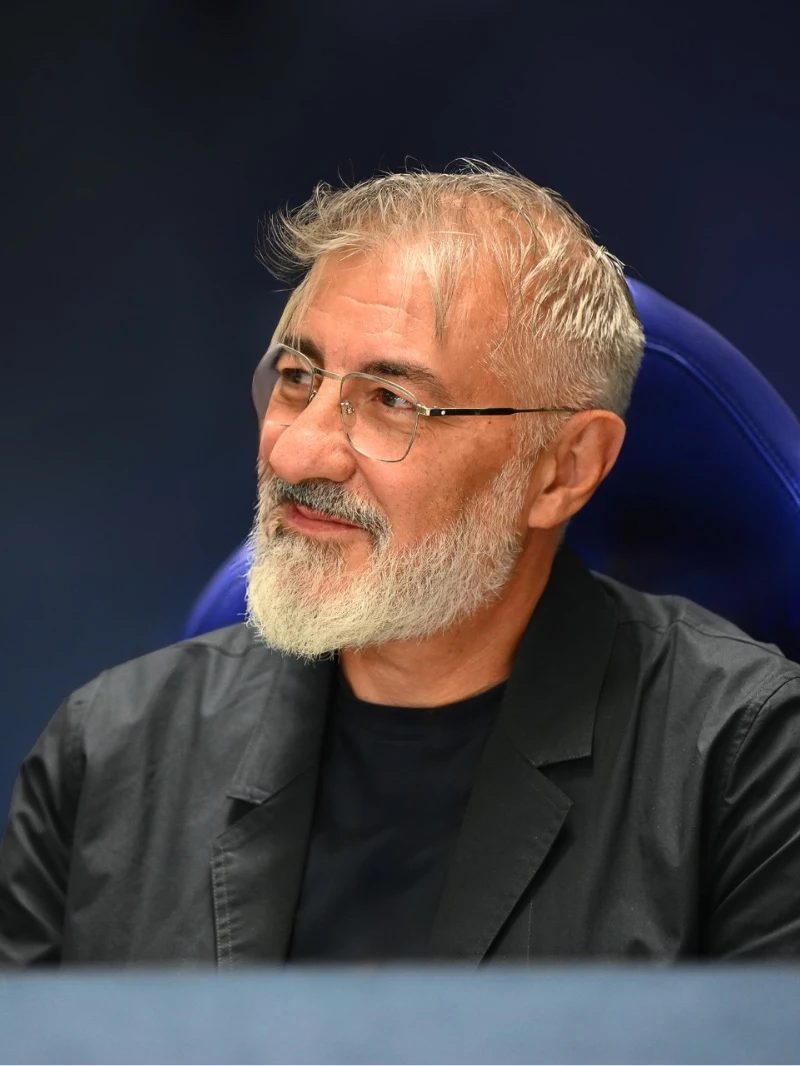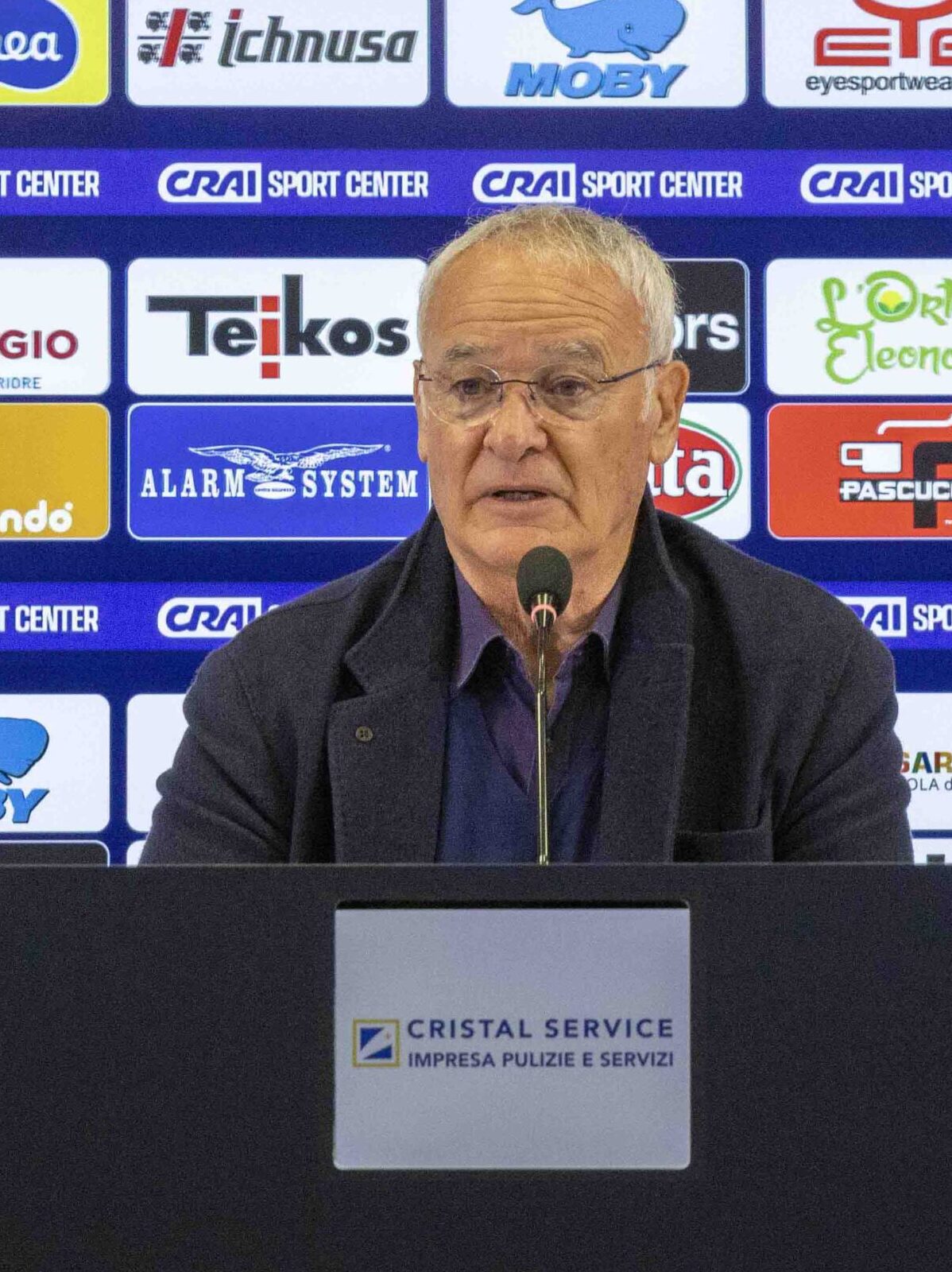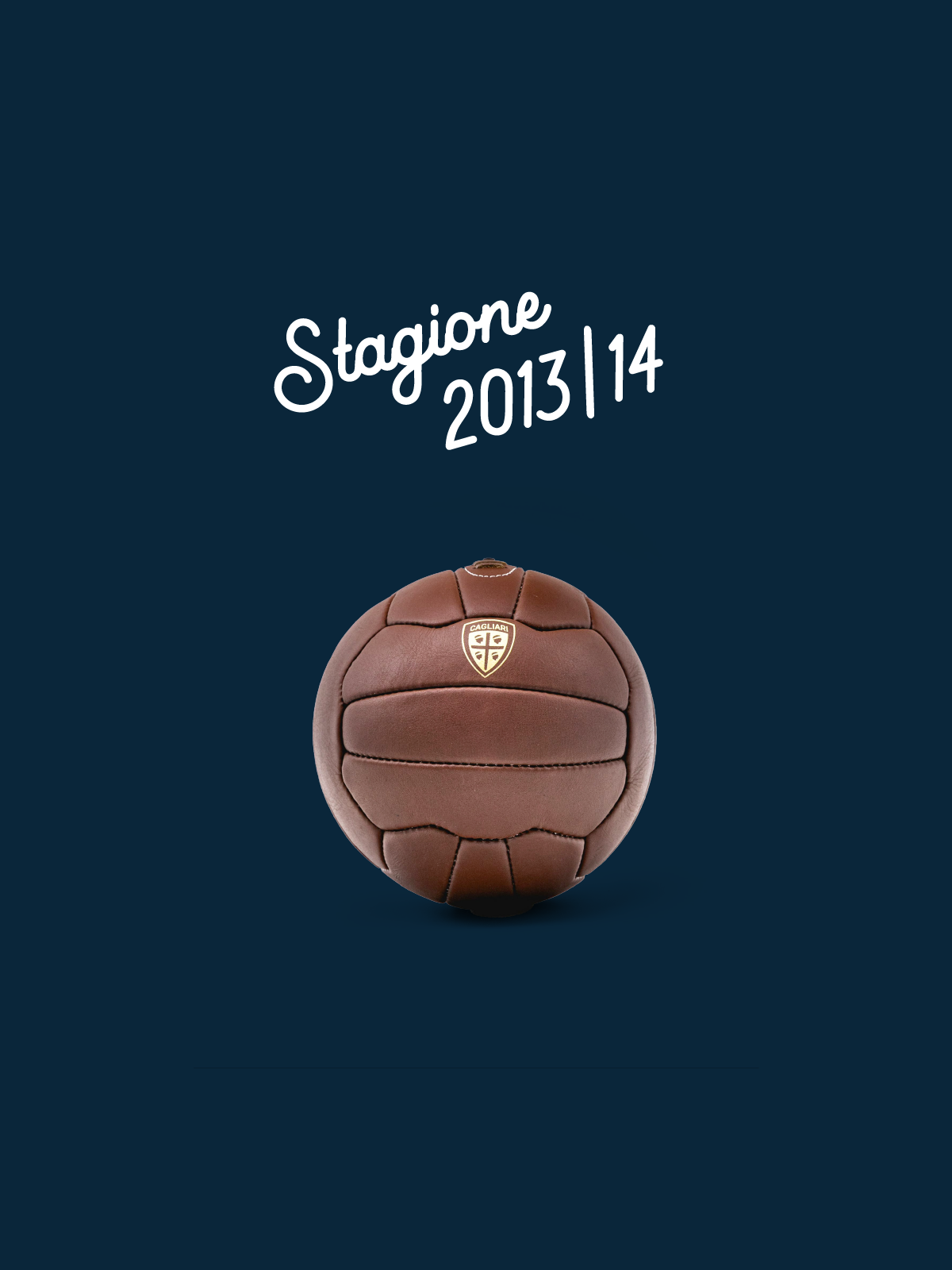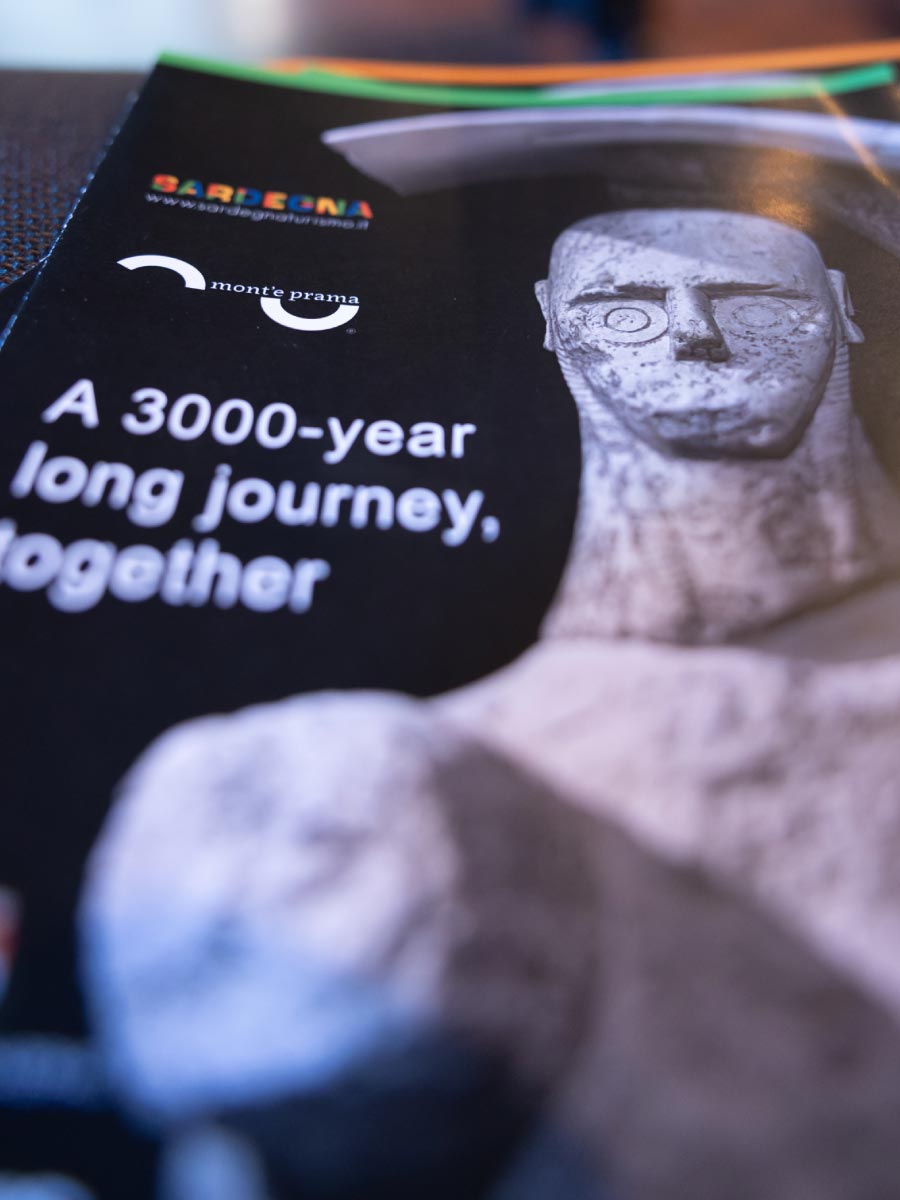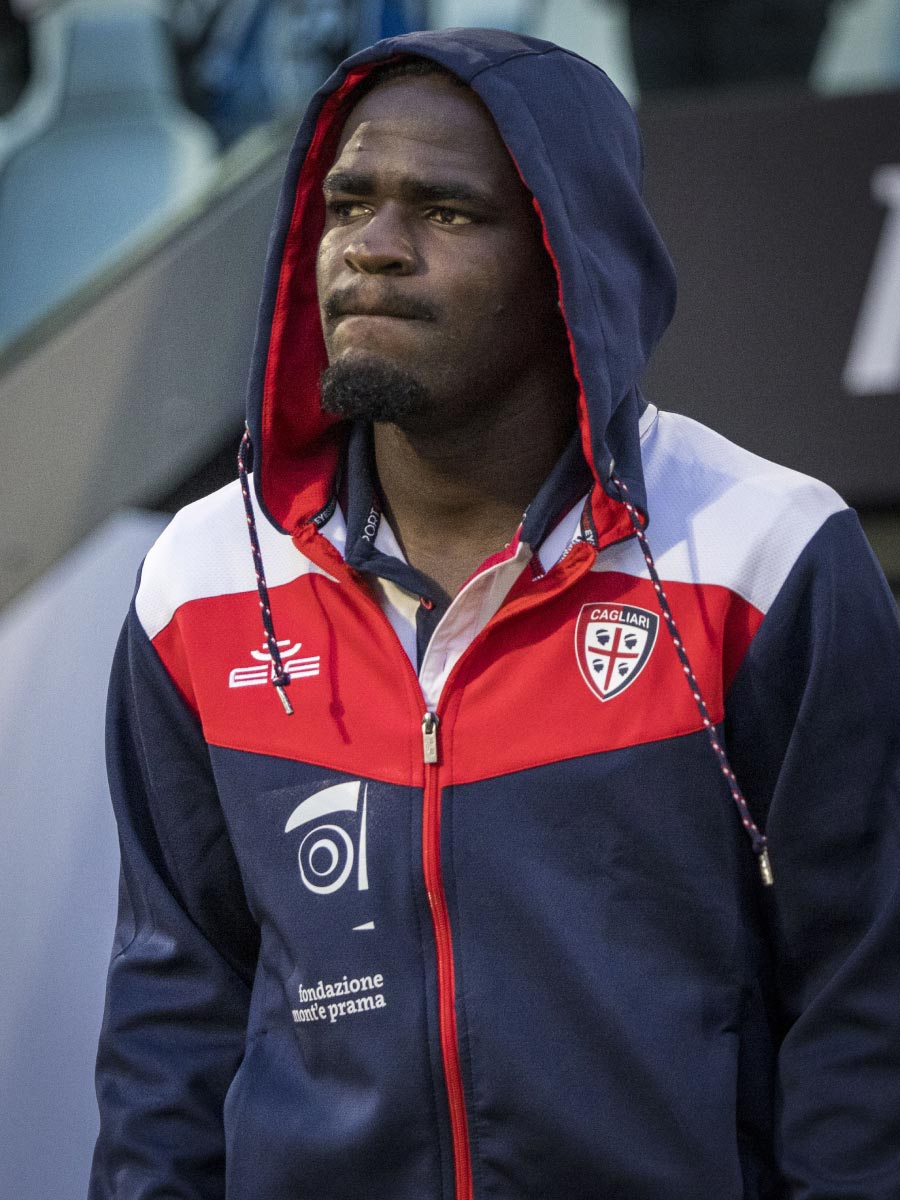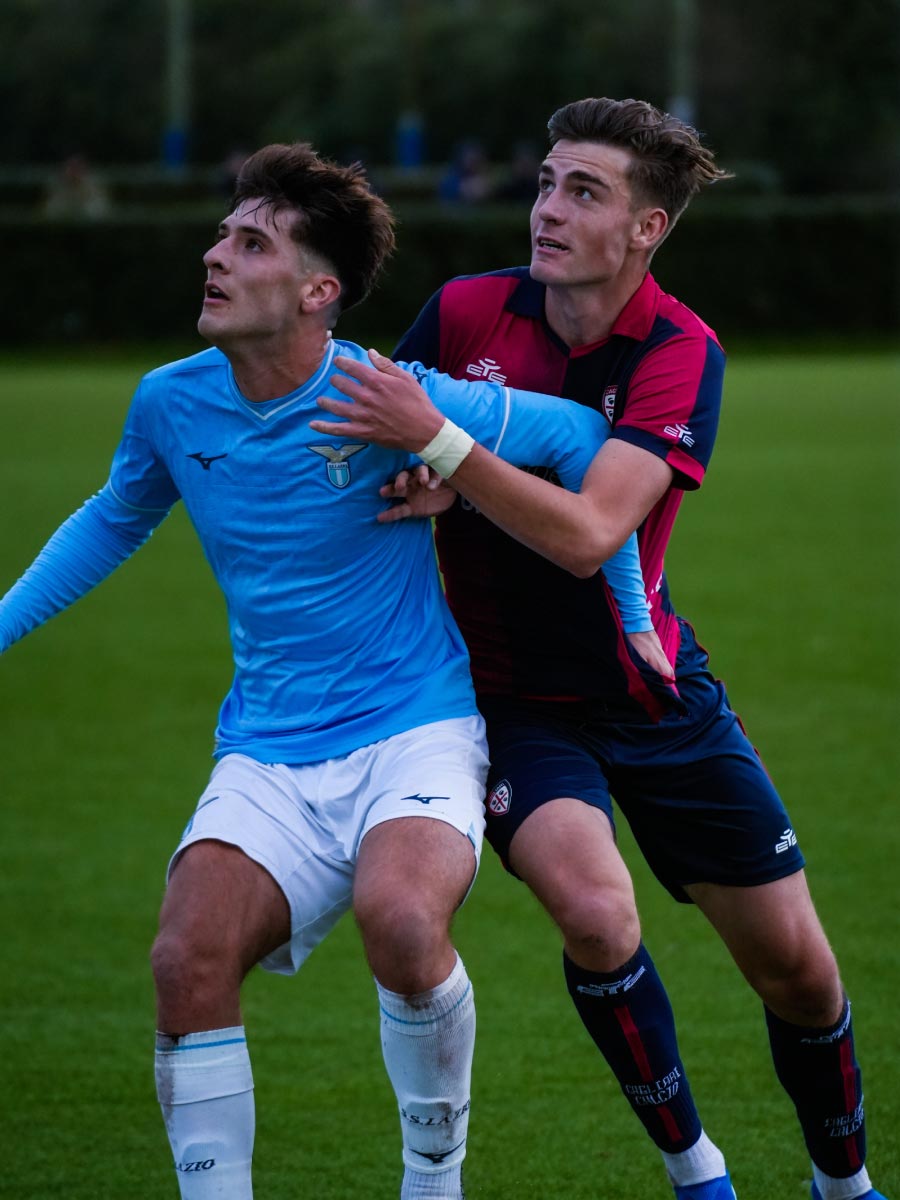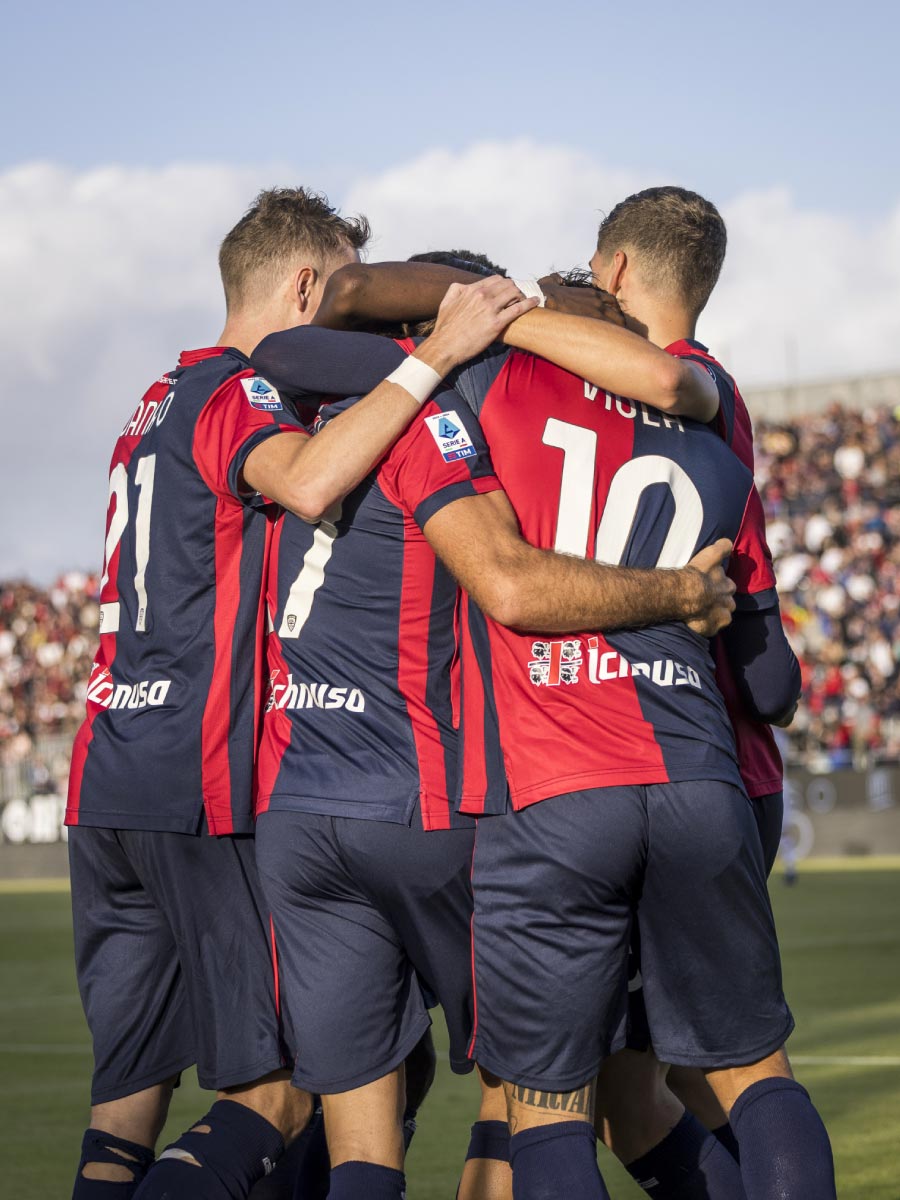FOREVER GIGI RIVA
He was the greatest of all. Without equals or possible comparisons. The strongest Italian forward in history. And one of the most deadly strikers who have ever existed. His name was Gigi Riva, also known as Thunderclap. Remarkable footballer, extremely sportsmanlike, bearer of clear values and principles. True legend, timeless myth. Icon of Sardinia, his adopted land, to which he was bound by visceral love. He left us today at the age of 79. A sad day for us and for all world football.
Each of us has a memory, an anecdote, a story to tell connected to him: a match, a goal, a simple chance encounter on the streets of Sardinia and in his Cagliari, a shy greeting, an autograph or a photo, a quick chat, a handshake. A piece of shared life to which we have dedicated a place of honor in the album of our memory, and that will never be removed. The flag that waved on the highest mast has been lowered, but what it represented will forever remain alive, as a memory for future generations. He challenged the strongest realities in football and emerged victorious. In the best way, earning admiration and unconditional respect from everyone, opponents included.
He took Cagliari up there, reaching for the clouds, where no one had ever managed to reach before. But even more than a simple, extraordinary sports champion, he has been an example, a symbol, an icon for Sardinia and the Sardinians. The identification between Gigi and Sardinia was total, without filters. He had the taste of a genuine and absolute love that nothing will ever erase. Not even the end of an existence. From today, we are all more alone. With roots torn away. As if a piece of ourselves had also departed. As if we had awakened from a long, intense, wonderful dream, from which we never wanted to wake up. Forever Gigi Riva, like no one else.
—
MONUMENT OF SPORT, RED-BLUE MONUMENT
In 2005, he received the honorary citizenship of Cagliari. The red and blue number 11 jersey, his jersey, was retired during the friendly match Italy-Russia at Sant’Elia in February 2005. In 2017, he was awarded the Golden Collar of Sporting Merit, the highest honor from CONI. In December 2019, the red-blue patron Tommaso Giulini appointed him honorary president of Cagliari Calcio.
—
HIS STORY, OUR STORY
With over 200 goals, he was the all-time leading scorer in the history of Cagliari. In red and blue, he won the Serie A top scorer title three times; a hero among heroes, he was the leader of the team that achieved the historic feat of winning the Scudetto in the 1969-70 season, the first for a southern club. In the azure blue of the national team: European champion in 1968, World Cup runner-up in Mexico ’70, the top scorer in the history of the national team with 35 goals in 42 matches.
Exceptional numbers and records that alone would be enough to tell the story of Luigi Riva from Leggiuno (Varese), but the greatness of the champion transcends all that and, generation after generation, delivers him to Myth. A forward with the gift of making all football enthusiasts excited: acrobatic goals, headers, volleys, defying the laws of physics. That left foot like a thunderclap: “a thunderous roar” that tore through the air and accompanied the ball into the net. L’uomo: esempio di orgoglio, fierezza, tenacia, lealtà. Arriving in Cagliari as a young boy, he became a symbol of an entire people. A totem for all Sardinians, both on the island and worldwide.
Gigi was born on November 7, 1944. Since he was a young boy, he had showcased his trademark: immense courage and a terrifying left foot of unprecedented power. From Laveno to Legnano in 1962, to the Junior National Team. Cagliari cleverly acquired him during the halftime of a match against Spain in Rome.
Under the guidance of coach Arturo Silvestri, he immediately showed his worth. With 8 goals, he contributed to Cagliari’s first, historic promotion to Serie A. He threw himself at every ball, played with incredible competitive spirit. “Riva puts his head where others don’t dare put their foot,” said Lupi, his coach in the youth national team.
He made his debut for the national team on June 27, 1965, in Budapest, in a friendly against Hungary, becoming the first Cagliari player to wear the azure blue. In his third game with Italy, a friendly against Portugal in Rome on March 27, 1967, he collided with the Portuguese goalkeeper America, suffering the first serious injury of his career: a fracture of the left foot’s fibula. He ended the season prematurely but managed to maintain the top spot in the top scorer’s chart with 18 goals. He repeated his success in the following season, scoring 20 goals as Cagliari finished second in the league behind Fiorentina.
A year earlier, Gigi had become a European champion with the national team. His goal unlocked the situation in the replayed final against Yugoslavia at the Olympic Stadium. Italy won an international title again after thirty years. Under the guidance of Manlio Scopigno and after a summer with many market movements, Cagliari is ready for the ultimate goal. And the Scudetto it will be, at the end of an exhilarating season. And the Scudetto it will be, at the end of an exhilarating season. He scores 21 goals, some memorable, like the bicycle kick against Vicenza that makes the local fans stand up and applaud openly, perhaps his most beautiful goal along with the diving header in Italy-East Germany, certainly the most iconic. The third top scorer title is the cherry on top of a memorable triumph.
He, who initially wanted nothing to do with moving, falls deeply in love with Sardinia, reciprocated. He systematically rejects million-dollar offers from other clubs just to stay here, and here he will stay forever.
“Leaving would have been like betraying. We used to play on the mainland, and opposing fans would shout everything at us: outlaws, shepherds… I thought it wasn’t fair; our people didn’t deserve those insults.”
He finishes second in the Ballon d’Or 1969 behind Gianni Rivera and is instrumental in Italy’s second-place finish in the 1970 World Cup in Mexico. For the expedition to the plateaus, coach Valcareggi calls up six Cagliari players: besides Riva, Albertosi, Cera, Niccolai, Domenghini, and Gori. At the end of the year, he is third in the Ballon d’Or ranking, after Gerd Muller and Bobby Moore.
The 1970-71 season seems to reserve an easy back-to-back championship for the red-blues. Cagliari soars to the top of the standings after an impressive show of strength against Inter. Riva scores a brace, and it is after this match that journalist Gianni Brera coins the nickname “Rombo di Tuono” (Thunderclap) for him, emphasizing his exceptional power, a definition that will accompany him forever. Unfortunately, bad luck is lurking. In Vienna, in a European Championship qualification match against Austria, Gigi fractures the fibula of his left leg after a tough tackle from defender Hof. Without their most representative leader, Cagliari quickly exits the title race and is eliminated by Atletico Madrid in the European Cup. On February 1, 1976, in a league match against Milan at Sant’Elia, he suffers a severe muscle tear in the adductor, effectively ending his career at only 31. He finishes with 205 goals in 374 appearances in red and blue, naturally the top scorer in the club’s history and fifth in the appearances chart.
He is also the all-time top scorer for the national team, with 35 goals in 42 matches.
—
AT THE SERVICE OF CAGLIARI
Once his extraordinary playing career is over, Gigi becomes a director for Cagliari. With Mariano Delogu as president and Mario Tiddia as coach, he brings Cagliari back to Serie A in 1978-79, achieving eighth and sixth places in the top flight. Subsequently, difficult years arrived.
Cagliari, on the brink of bankruptcy, clung even tighter to its flag. Gigi, for a brief period, personally took on the role of president. Then he guided the club into the hands of the Orrù family.
—
AZZURRI OFFICIALI
In1988, he took on the role of team manager for the Italian national team. He was a friend, an older brother, a confidant, a motivator, and much more for generations of champions, from Vialli to Maldini, from Roberto Baggio to Totti. In 2006, he was part of the staff that won the fourth World Cup title. He left the position in 2013.






